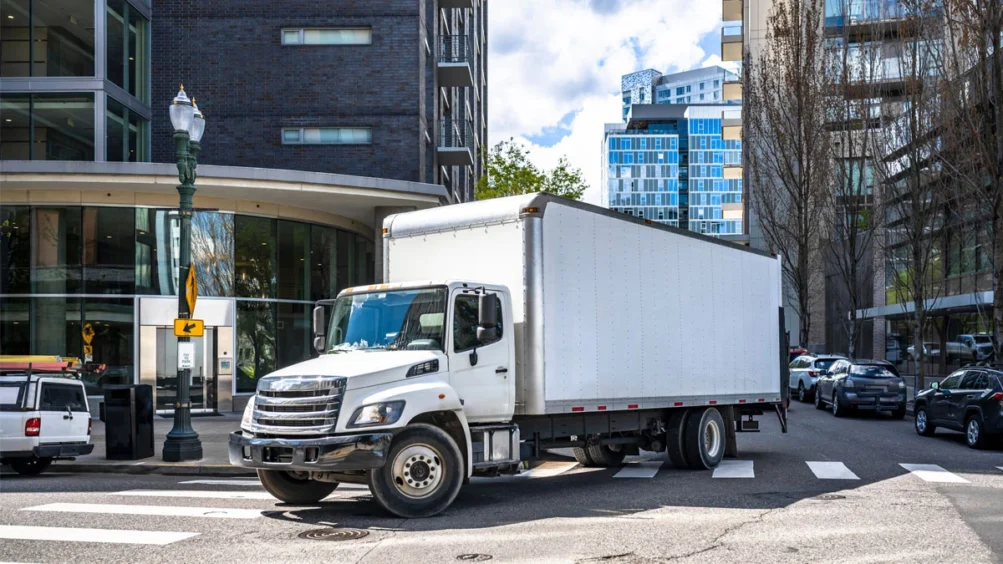
What is a Small Truck Load (STL)?
The freight shipping industry currently splits semi-truck freight loads into two major freight sizing categories: Full Truckload (FTL) and Less Than Truckload (LTL).
FTL deliveries describe freight that travels on its own, in a semi-truck, directly to the destination. LTL freight is batched together with other loads to be delivered economically.
However, modern demands for sustainability, timeliness, responsiveness, and the unique needs of shippers has brought about a distinct freight shipping solution in the industry: STL (Small Truck Load).
An STL shipment refers to a freight load that travels distances that may be as long as those taken semi-truck, but in a straight truck, box truck, or cargo van. The load travels directly from the shipper to the destination, offering more peace-of-mind.
Expedite All specializes in coordinating STL deliveries. This freight shipping method has the following features and benefits:
STL Features
Small-Truck Loads (STL) are characterized by the following features:
- Using a box truck or cargo van instead of a semi-truck with trailer.
- Traveling directly from the loading point to the destination without extra stops.
- Not utilizing hub-and-spoke distribution models or linehaul carriers.
STL Benefits
- Sustainability: As ESG and green initiatives gain importance to businesses across many different industries, having a green shipping option allows companies to address a major carbon footprint driver. Small Truck Load shipments can run on a much more scale-efficient platform, as opposed to using a 53-foot trailer. For example, a Sprinter van will run at around 18 miles per gallon.
- Time savings: Loads travel faster on a small truck, and STL deliveries eliminate stops at distribution centers. STL deliveries also have no “last-mile” delay. This is a value-add for customers.
- Exclusive Truck Use: Loads are not batched together and mixed with other loads, a major advantage for sensitive loads.
- Maneuverability: STL deliveries allow for access to ramped loading bays and ground-level loading ramps that aren’t accessible for 53-foot trailers. Many offices and professional facilities are not equipped to handle large trailer deliveries.
Types of STL delivery vehicles
- Cargo Vans and Sprinter Vans
- Cargo delivery vans are often used for last mile deliveries, but are also very well suited for long hauls. They feature strong fuel efficiency, and have enough space to carry palletized loads. Depending on the model, a cargo van may be able to carry up to 3,500 lbs.
- Box Trucks and Cube Vans
- Box Trucks and Cube vans are small trucks with a cargo enclosure on the back. They can usually hold more pallets than a Sprinter van, and feature more overall storage space. A box truck may carry up to 3,500 lbs.
- Straight Trucks
- Straight Trucks (Box Trucks) have a variety of use cases, and can often feature advanced liftgate systems and larger space and weight capacities. In an STL delivery capacity, they offer fuel savings for would-be LTL loads. Box trucks can often carry up to 12 pallets and may have a weight capacity of up to 15,000 lbs.
- Reefer Vans
- Reefer Vans can either be box trucks, cargo vans or straight trucks, but their defining feature is temperature control. They are ideal for hauling specialized loads such as food, medicines, and pharmaceuticals. Temperature-controlled STL deliveries are often run by Reefer Vans.
Expedite All is a total STL shipping solution with years of operating experience and a large network taking the Small Truck Load (STL) delivery model coast-to-coast across all mainland United States.
You May Be Interested In
5 ways transportation has been impacted by e-commerce
Consumer Behavior drives how businesses work. Customers tend to follow relatively consistent, but evolving patterns of behavior, and businesses work hard to understand those patterns. However, with rise of COVID-19 infections, and the resulting recommendations to distance, many consumers have adopted new habits.
The Future of Expedited Freight
Time is one of the most valuable resources in both life and business. Companies and customers alike expect tight deadlines to be met for shipping and receiving products, driving the growth of expedited freight services. With the rise of e-commerce and increased pressure on supply chains, the demand for expedited freight has become even more critical…